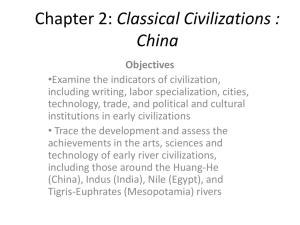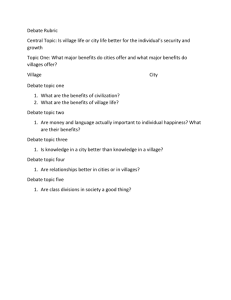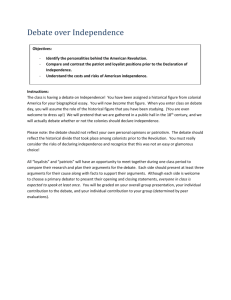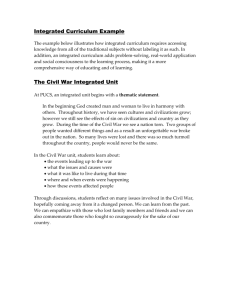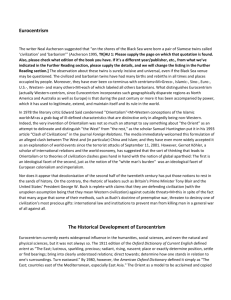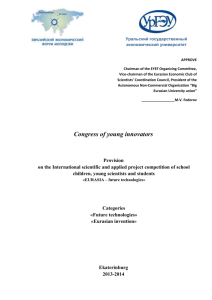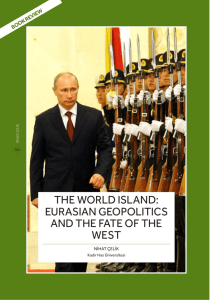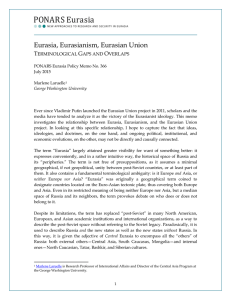Workshop "Beyond the Eurocentrism Debate"
advertisement
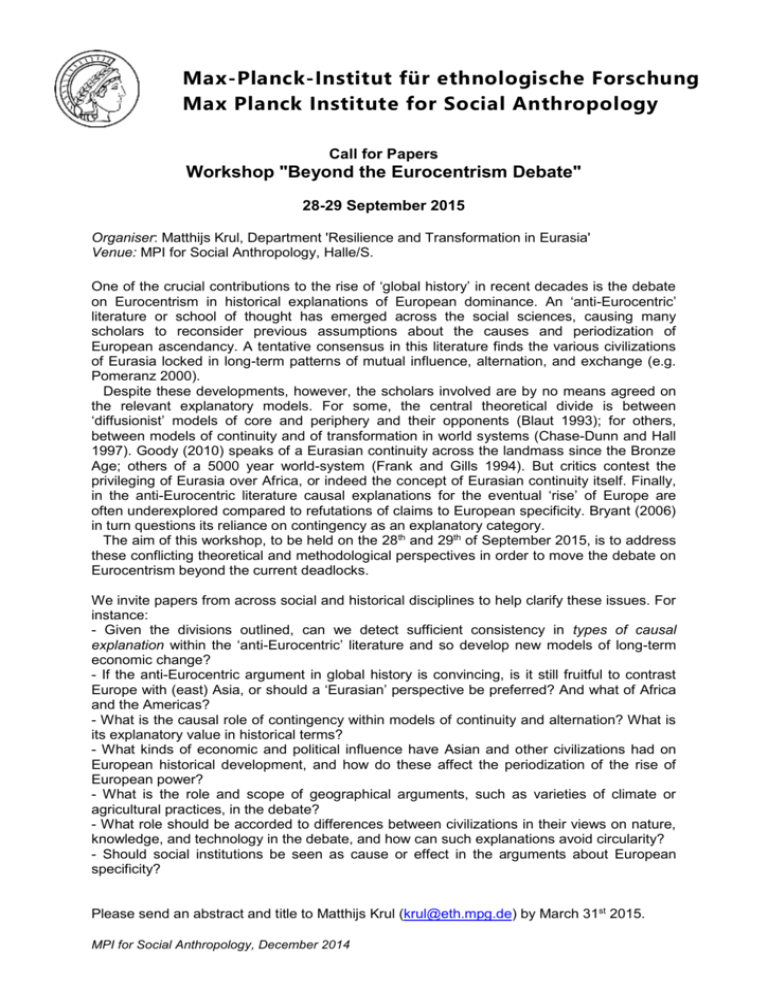
Max-Planck-Institut für ethnologische Forschung Max Planck Institute for Social Anthropology Call for Papers Workshop "Beyond the Eurocentrism Debate" 28-29 September 2015 Organiser: Matthijs Krul, Department 'Resilience and Transformation in Eurasia' Venue: MPI for Social Anthropology, Halle/S. One of the crucial contributions to the rise of ‘global history’ in recent decades is the debate on Eurocentrism in historical explanations of European dominance. An ‘anti-Eurocentric’ literature or school of thought has emerged across the social sciences, causing many scholars to reconsider previous assumptions about the causes and periodization of European ascendancy. A tentative consensus in this literature finds the various civilizations of Eurasia locked in long-term patterns of mutual influence, alternation, and exchange (e.g. Pomeranz 2000). Despite these developments, however, the scholars involved are by no means agreed on the relevant explanatory models. For some, the central theoretical divide is between ‘diffusionist’ models of core and periphery and their opponents (Blaut 1993); for others, between models of continuity and of transformation in world systems (Chase-Dunn and Hall 1997). Goody (2010) speaks of a Eurasian continuity across the landmass since the Bronze Age; others of a 5000 year world-system (Frank and Gills 1994). But critics contest the privileging of Eurasia over Africa, or indeed the concept of Eurasian continuity itself. Finally, in the anti-Eurocentric literature causal explanations for the eventual ‘rise’ of Europe are often underexplored compared to refutations of claims to European specificity. Bryant (2006) in turn questions its reliance on contingency as an explanatory category. The aim of this workshop, to be held on the 28th and 29th of September 2015, is to address these conflicting theoretical and methodological perspectives in order to move the debate on Eurocentrism beyond the current deadlocks. We invite papers from across social and historical disciplines to help clarify these issues. For instance: - Given the divisions outlined, can we detect sufficient consistency in types of causal explanation within the ‘anti-Eurocentric’ literature and so develop new models of long-term economic change? - If the anti-Eurocentric argument in global history is convincing, is it still fruitful to contrast Europe with (east) Asia, or should a ‘Eurasian’ perspective be preferred? And what of Africa and the Americas? - What is the causal role of contingency within models of continuity and alternation? What is its explanatory value in historical terms? - What kinds of economic and political influence have Asian and other civilizations had on European historical development, and how do these affect the periodization of the rise of European power? - What is the role and scope of geographical arguments, such as varieties of climate or agricultural practices, in the debate? - What role should be accorded to differences between civilizations in their views on nature, knowledge, and technology in the debate, and how can such explanations avoid circularity? - Should social institutions be seen as cause or effect in the arguments about European specificity? Please send an abstract and title to Matthijs Krul (krul@eth.mpg.de) by March 31st 2015. MPI for Social Anthropology, December 2014
